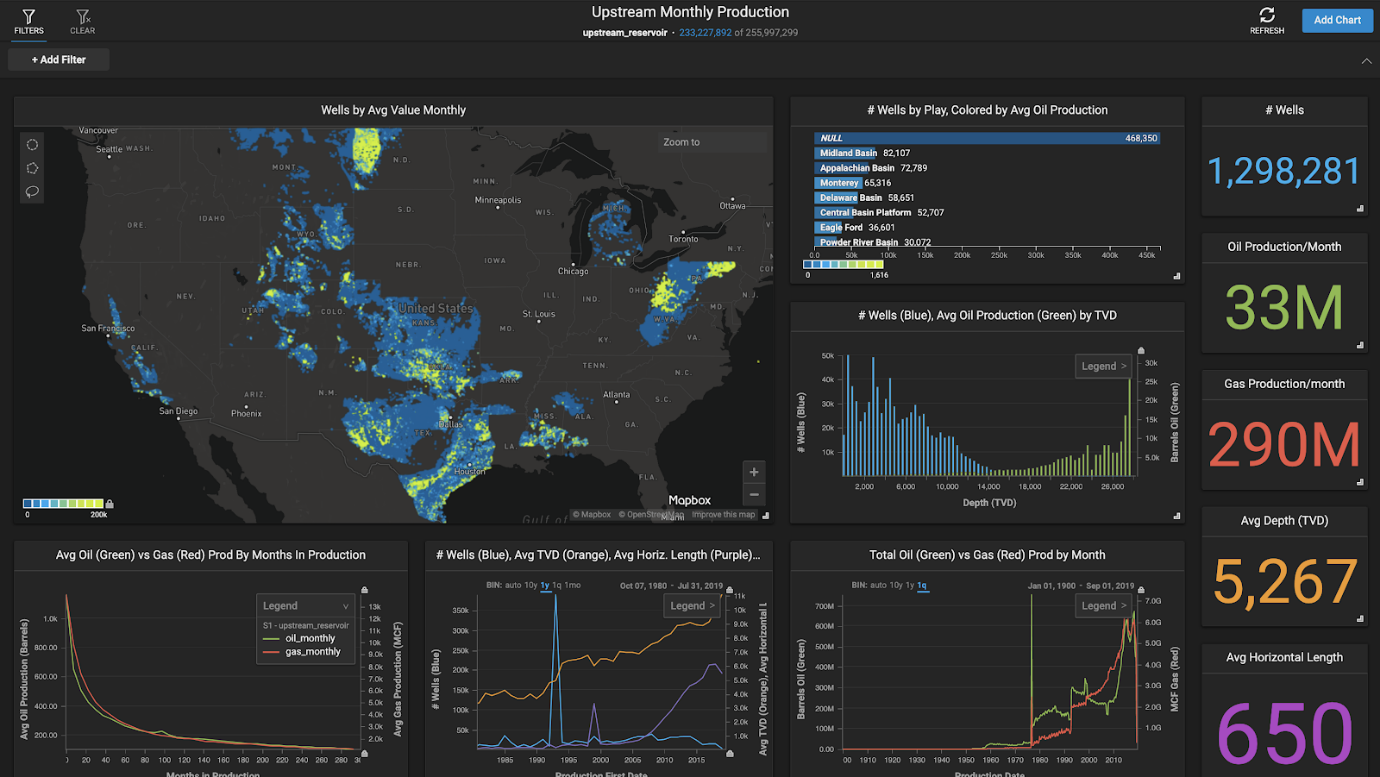Course Introduction
In today's data-driven oil and gas industry, the
ability to analyze, visualize, and interpret drilling data is crucial. Power
Bl, a leading business analytics tool, allows drilling engineers to transform
raw data into meaningful insights. This 6-day course is designed to equip
drilling professionals with the skills to utilize Power BI for enhanced
operational efficiency and data-driven decision-making.
Course Objectives
By the end of this course, participants will:
1.
Gain a deep understanding of Power BI
and its relevance in drilling engineering.
2.
Learn to clean, transform, and
prepare drilling data for analysis.
3.
Develop interactive dashboards to
track drilling performance and well production.
4.
Apply advanced data modeling and
analytics techniques to solve real-world drilling challenges.
5.
Build complete dashboards through
hands-on projects based on real-life case studies.
Learning Outcomes
Participants will be able to:
1.
Navigate Power BI’s interface and
tools confidently.
2.
Use Power Query to clean and
transform drilling datasets.
3.
Develop dashboards tailored to
monitoring drilling KPIs like ROP, NPT, and cost per foot.
4.
Perform advanced analytics using DAX
to uncover operational insights.
5.
Apply their skills to two real-world
drilling case studies for impactful learning.
Course Agenda
1.
Power BI Basics for Drilling
Engineers
Course Kickoff
o
Introduction to Power BI in the
context of drilling engineering.
o
Overview of course agenda and
expectations.
Power BI Interface Walkthrough
o
Navigation: Ribbon, Canvas, Fields,
Visualizations.
Building Your First Dashboard
o
Using mock drilling data to create
visualizations (ROP trends, cost/ft).
o
Practical Exercise: Hands-on creation
of a simple dashboard.
2.
Preparing and Cleaning Drilling Data
Introduction to Power Query
o
Exploring Power Query Editor:
Managing missing values, removing duplicates.
o
Common transformations for drilling
datasets.
Connecting to Data Sources
o
Importing drilling data from Excel,
SQL databases, and APIs.
Practical Application
o
Cleaning and merging drilling logs
with bit performance data.
3.
Advanced Data Preparation and
Dashboard Design
Advanced Power Query Techniques
o
Data transformation for
formation-based analysis.
o
Creating pivoted views for ROP comparisons.
Building Comprehensive Dashboards
o
Slicers and filters for drilling
datasets.
o
Visualizing well trajectories on
maps.
4.
Data Modeling and Introduction to DAX
Power Pivot and Data Relationships
o
Linking data tables for drilling
operations.
o
Practical: Setting up relationships
between bit performance, formations, and costs.
Introduction to DAX
o DAX
basics: Calculated columns, measures.
o Creating
simple KPIs (ROP, NPT percentages)
Case Study
o Using
DAX to calculate operational efficiency metrics.
5.
Advanced DAX Functions
o FILTER,
CALCULATE, RELATED for drilling analysis.
o Time
intelligence: Analyzing drilling progress over time.
Project 1: Drilling Performance Analysis
Dashboard
·
Objective: Monitor daily drilling
performance (ROP, cost/ft, downtime).
·
Practical: Building an end-to- end
dashboard.
Project 2: Well Production Monitoring Dashboard
·
Objective: Monitor and optimize well
production (cumulative production, decline trends).
·
Practical: Integrating maps, advanced
visuals, and custom KPIs.
FAQs
1. Who should attend this course?
This course is designed for drilling engineers,
petroleum engineers, and professionals involved in drilling operations who want
to enhance their data analysis and visualization skills.
2. What prior knowledge is required?
No prior experience with Power BI is necessary. Basic
familiarity with drilling operations and data analysis concepts will be
beneficial.
3. What tools will I need?
Participants will need a computer with Power BI
Desktop installed (free version) and access to sample drilling datasets
provided during the course.
4. Will there be practical sessions?
Yes, the course is hands-on, with real-world drilling
projects integrated into the training agenda.
5. Will I receive a certificate?
Yes, participants who complete the course will receive
a certificate of completion.


